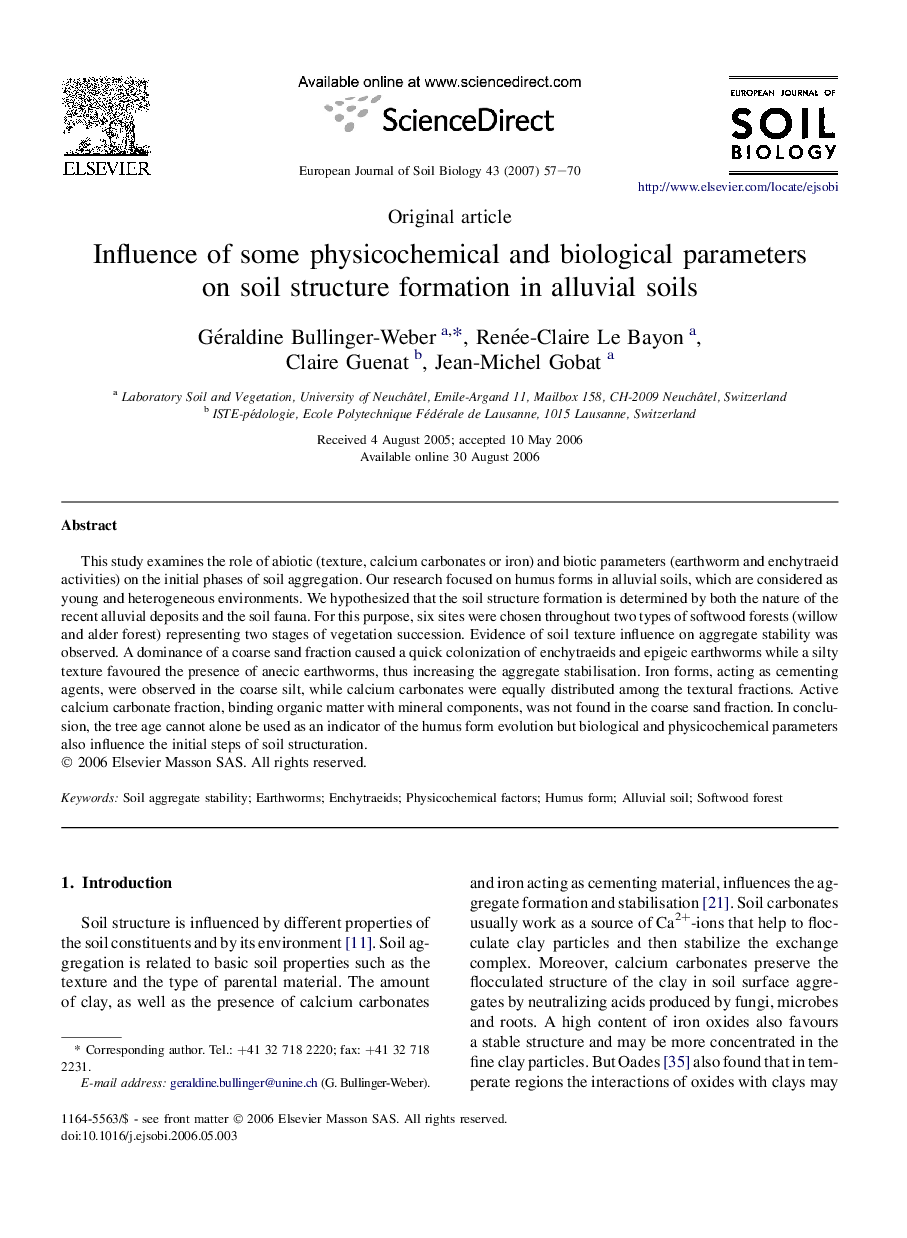| کد مقاله | کد نشریه | سال انتشار | مقاله انگلیسی | نسخه تمام متن |
|---|---|---|---|---|
| 4392536 | 1618170 | 2007 | 14 صفحه PDF | دانلود رایگان |

This study examines the role of abiotic (texture, calcium carbonates or iron) and biotic parameters (earthworm and enchytraeid activities) on the initial phases of soil aggregation. Our research focused on humus forms in alluvial soils, which are considered as young and heterogeneous environments. We hypothesized that the soil structure formation is determined by both the nature of the recent alluvial deposits and the soil fauna. For this purpose, six sites were chosen throughout two types of softwood forests (willow and alder forest) representing two stages of vegetation succession. Evidence of soil texture influence on aggregate stability was observed. A dominance of a coarse sand fraction caused a quick colonization of enchytraeids and epigeic earthworms while a silty texture favoured the presence of anecic earthworms, thus increasing the aggregate stabilisation. Iron forms, acting as cementing agents, were observed in the coarse silt, while calcium carbonates were equally distributed among the textural fractions. Active calcium carbonate fraction, binding organic matter with mineral components, was not found in the coarse sand fraction. In conclusion, the tree age cannot alone be used as an indicator of the humus form evolution but biological and physicochemical parameters also influence the initial steps of soil structuration.
Journal: European Journal of Soil Biology - Volume 43, Issue 1, January–February 2007, Pages 57–70